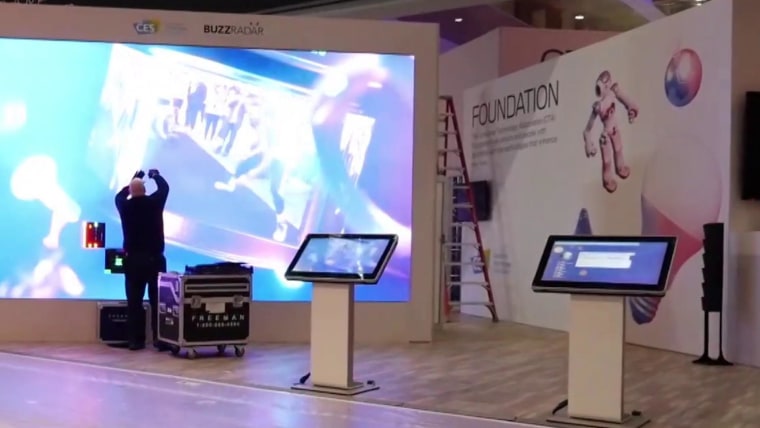Every year, CES takes over Las Vegas, creating a wonderland packed with new tech gadgets and ideas that range from useful to dystopian to bizarre.
This year did not disappoint. While there were the usual sleek TVs and self-driving car advancements, there were also ideas that were a bit more out of the box.
“Not every product demonstrated at CES is sold to consumers,” said Patrick Moorhead, principal analyst at Moor Insights & Strategy. “Some vendors use CES to research and gauge traction, and if there’s little interest, decide not to sell to the public.”
With that in mind, here’s a look at some of the most buzzworthy concepts and products on display at this year’s show, ranging from interesting and useful to delightfully absurd.
A toilet paper robot
Get breaking news and insider analysis on the rapidly changing world of media and technology right to your inbox.
Alexa-enabled toilets are so last year. The next wave of bathroom disruption involves a cute little robot from Charmin. The Rollbot is designed to come to the rescue with an extra roll of toilet paper, that way a person doesn’t have to leave the porcelain throne in the middle of doing their business, or shout for someone to rescue them with a fresh roll of toilet paper. Of all the robots at CES, this one might have been the most bizarre. But don’t expect the Rollbot to invade your bathroom experience just yet. It’s currently only a concept.
A headless robot kitten
Imagine a pillow covered in cat fur and a wagging tail and you have the Petit Qoobo.
The smaller sibling to Qoobo, the headless robot cat, is small enough for people to take the furry companion with them everywhere they go. Once you get past its lack of a head (minor detail!), the Petit Qoobo shares similar traits to real-life felines. It moves its tail to react to touch and can mimic meows and purrs. Petit Qoobo is currently a concept, but its larger sibling, the Qoobo, costs $149 on Amazon.
A rolling virtual assistant
While CES has plenty of niche robots, Samsung’s Ballie wants to be just about everything to you. The tiny, ball-shaped robot can act as a home security system, a fitness assistant, and can also use its AI capabilities to react to its human owner’s ever-evolving needs, according to Samsung.
“We see on-device AI as central to truly personalized experiences,” said Sebastian Seung, executive vice president and chief research scientist at Samsung Electronics. “On-device AI puts you in control of your information and protects your privacy, while still delivering the power of personalization.”
A voice-activated faucet
The year is 2020. We still don’t have our own flying cars (only concepts!) but we’ll soon be able to talk to our faucets. The U by Moen Smart Faucet will help people complete kitchen tasks hands-free. While it may seem silly at first to talk to a basic part of your kitchen, the faucet is designed to help conserve water, dispensing just the right amount at the temperature needed, without a drop going to waste. (Moen previously debuted smart shower heads at CES.) The company did not immediately provide a release date or price.
An artificial human
A few computer-generated humans made their debut at CES to plenty of hype, but failed to impress their flesh and blood counterparts. The “artificial humans” are a result of Neon, a project created by Samsung’s STAR Labs.
“Neon is like a new kind of life,” STAR Labs CEO Pranav Mistry said in a news release. “There are millions of species on our planet and we hope to add one more.”
The Neon avatars are supposed to be able to carry on human-like conversations and have their own unique thoughts and emotions. While they may have been overhyped at CES 2020, STAR Labs has big plans for their avatars to one day seamlessly integrate into society.
“In the near future, one will be able to license or subscribe to a NEON as a service representative, a financial adviser, a healthcare provider, or a concierge,” the company says. “Over time, NEONs will work as TV anchors, spokespeople, or movie actors; or they can simply be companions and friends.”












